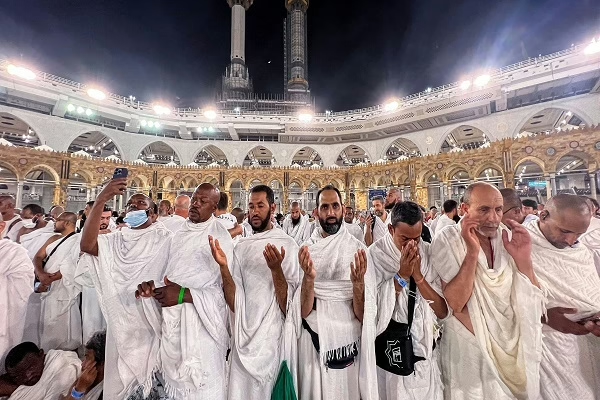Introduction: The Spiritual Call of Hajj
Every year, millions of Muslims from around the world answer the divine call to perform Hajj, one of the Five Pillars of Islam. This sacred pilgrimage to Makkah is a profound spiritual experience, embodying submission to Allah, unity among believers, and the purification of the soul.
But what makes Hajj so significant? Why do Muslims endure physical and financial challenges to undertake this journey? In this comprehensive guide, we’ll explore the history, rituals, significance, and transformative power of Hajj in Islam—a pilgrimage that every able-bodied and financially capable Muslim must perform at least once in their lifetime.
What is Hajj in Islam?
Definition and Religious Importance
Hajj is the annual Islamic pilgrimage to the holy city of Makkah in Saudi Arabia. It occurs during the Islamic month of Dhu al-Hijjah, the last month of the lunar calendar, and is a mandatory religious duty for Muslims who meet specific criteria.
The Quran states:
“And [due] to Allah from the people is a pilgrimage to the House—for whoever is able to find thereto a way.” (Quran 3:97)
This verse underscores Hajj as a fundamental act of worship, deeply rooted in the tradition of Prophet Ibrahim (Abraham) and his family.
The History of Hajj: From Prophet Ibrahim to Modern Times
The Origins of Hajj
The rituals of Hajj trace back to Prophet Ibrahim (AS) and his son Ismail (AS). Key events include:
- The construction of the Kaaba: Built by Ibrahim and Ismail as the first house of worship for Allah.
- Hajar’s search for water: The running between Safa and Marwah commemorates Hajar’s (Hagar) struggle to find water for her son Ismail, leading to the miracle of Zamzam water.
- The sacrifice of Ismail: The ritual of Qurbani (sacrifice) during Eid al-Adha stems from Ibrahim’s willingness to sacrifice his son in obedience to Allah.
Hajj in the Time of Prophet Muhammad (PBUH)
Before Islam, the Kaaba was surrounded by idol worship. In 632 CE, the Prophet Muhammad (PBUH) performed his only Hajj, known as Hajjat al-Wada (The Farewell Pilgrimage), reinstating the pure monotheistic rituals.
The Rituals of Hajj: A Step-by-Step Guide
Hajj consists of several key rituals performed over 5-6 days. Here’s a breakdown:
1. Ihram: Entering the Sacred State
- Pilgrims enter a state of Ihram (purity) by wearing simple white garments and making the intention (niyyah) for Hajj.
- Restrictions include avoiding arguments, violence, and intimate relations.
2. Tawaf: Circling the Kaaba
- Pilgrims perform Tawaf, walking seven times counterclockwise around the Kaaba while reciting prayers.
- This symbolizes unity and devotion to Allah.
3. Sa’i: Walking Between Safa and Marwah
- Pilgrims reenact Hajar’s search for water by walking seven times between the hills of Safa and Marwah.
4. Day of Arafat: The Peak of Hajj
- On the 9th of Dhu al-Hijjah, pilgrims gather at Mount Arafat, standing in prayer from noon until sunset.
- The Prophet (PBUH) said: “Hajj is Arafat.” (Hadith, Abu Dawood)
5. Muzdalifah and Stoning the Devil (Rami al-Jamarat)
- Pilgrims collect pebbles at Muzdalifah, then proceed to Mina to stone the three pillars (Jamarat), symbolizing the rejection of evil.
6. Eid al-Adha and Qurbani (Sacrifice)
- Pilgrims sacrifice an animal (sheep, goat, or cow) in remembrance of Ibrahim’s devotion.
- The meat is distributed to the poor.
7. Final Tawaf and Farewell
- Before leaving, pilgrims perform a final Tawaf (Tawaf al-Wada) to bid farewell to the Kaaba.
The Significance of Hajj in a Muslim’s Life
1. Spiritual Purification and Forgiveness
Hajj is a chance for Muslims to repent and seek Allah’s mercy. The Prophet (PBUH) said:
“Whoever performs Hajj and does not commit any obscenity or transgression will return [free from sins] as on the day his mother bore him.” (Bukhari)
2. Unity and Equality in Islam
- The white garments of Ihram remove distinctions of wealth, race, or nationality, emphasizing equality before Allah.
- Millions of Muslims from diverse backgrounds stand together in worship.
3. Strengthening Faith and Patience
- The physical and mental challenges of Hajj teach patience, humility, and reliance on Allah.
Who is Obliged to Perform Hajj?
Hajj is Fard (obligatory) for Muslims who:
✅ Are mentally and physically capable
✅ Have the financial means
✅ Can travel safely
✅ Have no outstanding debts
Women must be accompanied by a Mahram (male guardian) for safety.
Conclusion: The Everlasting Impact of Hajj
Hajj is more than a journey—it’s a lifelong spiritual transformation. It reinforces faith, fosters unity, and cleanses the soul. For those who have performed it, the memories remain etched in their hearts forever.
Have you ever dreamed of performing Hajj? Share your thoughts in the comments! If you found this guide helpful, consider sharing it with others who may benefit.
